Sorting skills Easy Worksheets for Ages 3-8
6 filtered results
-
From - To
Enhance your child’s sorting skills with our engaging and educational worksheets tailored for ages 3-8. Our carefully designed activities help young learners practice categorizing objects by color, shape, size, and more. These easy-to-follow worksheets not only make learning fun but also foster critical thinking and organizational abilities. With a variety of visually appealing exercises, children can develop essential sorting skills that are foundational for math and science concepts. Perfect for home or classroom use, our printable worksheets ensure that kids stay motivated and enthusiastic about learning through playful sorting challenges. Download now from Kids Academy to boost your child’s sorting prowess!
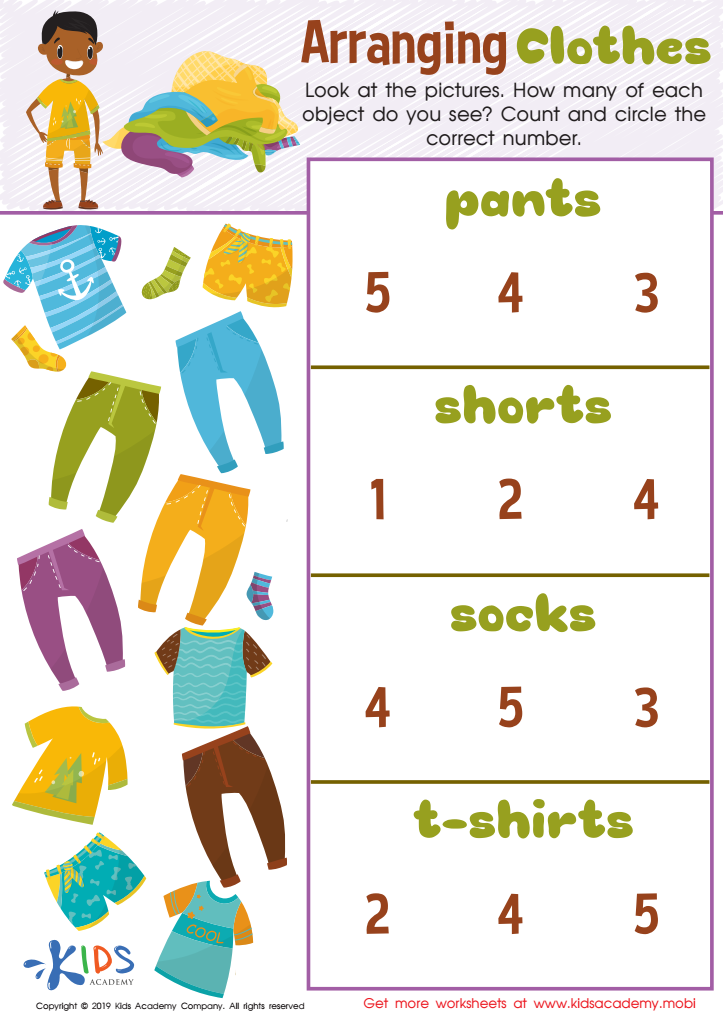

Arranging Clothes Worksheet
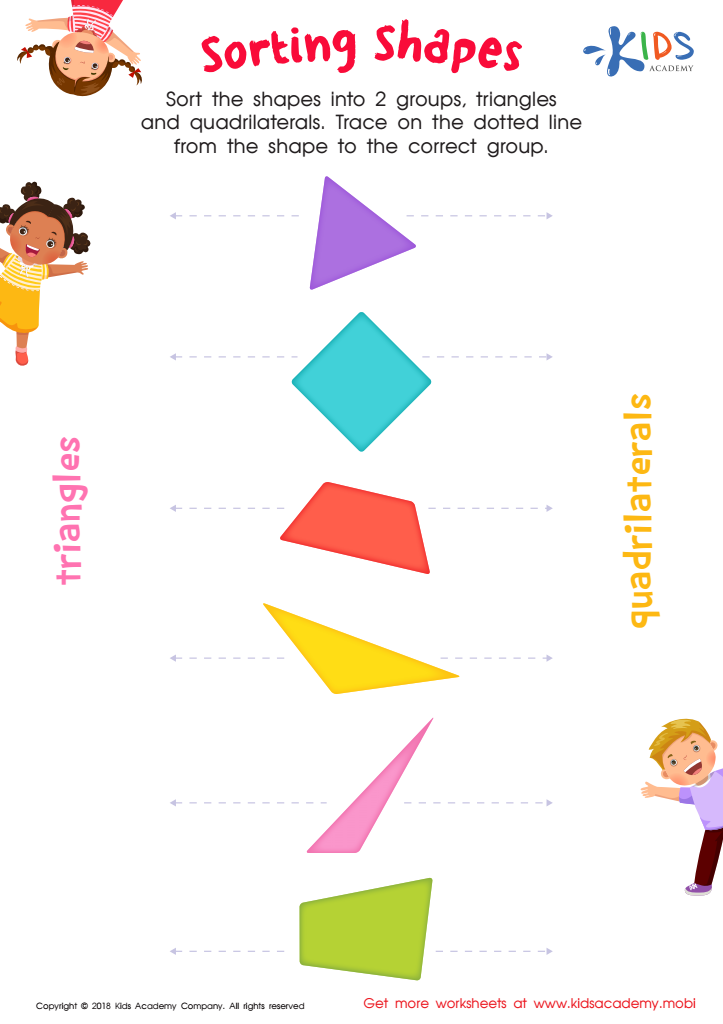

Sorting Shapes Worksheet
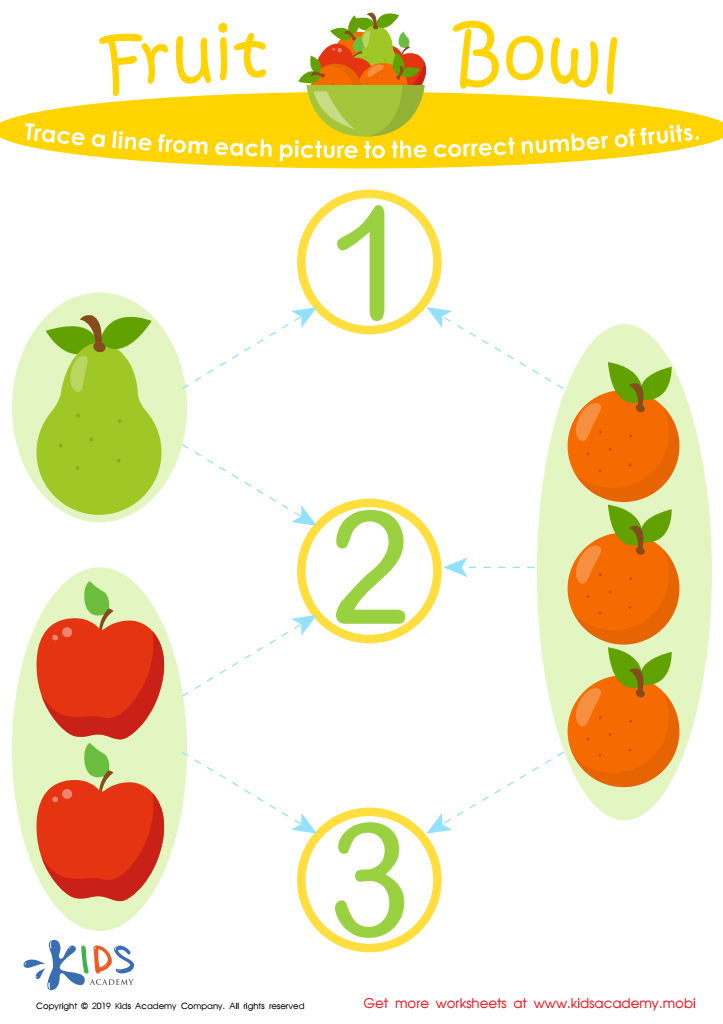

Fruit Bowl Worksheet
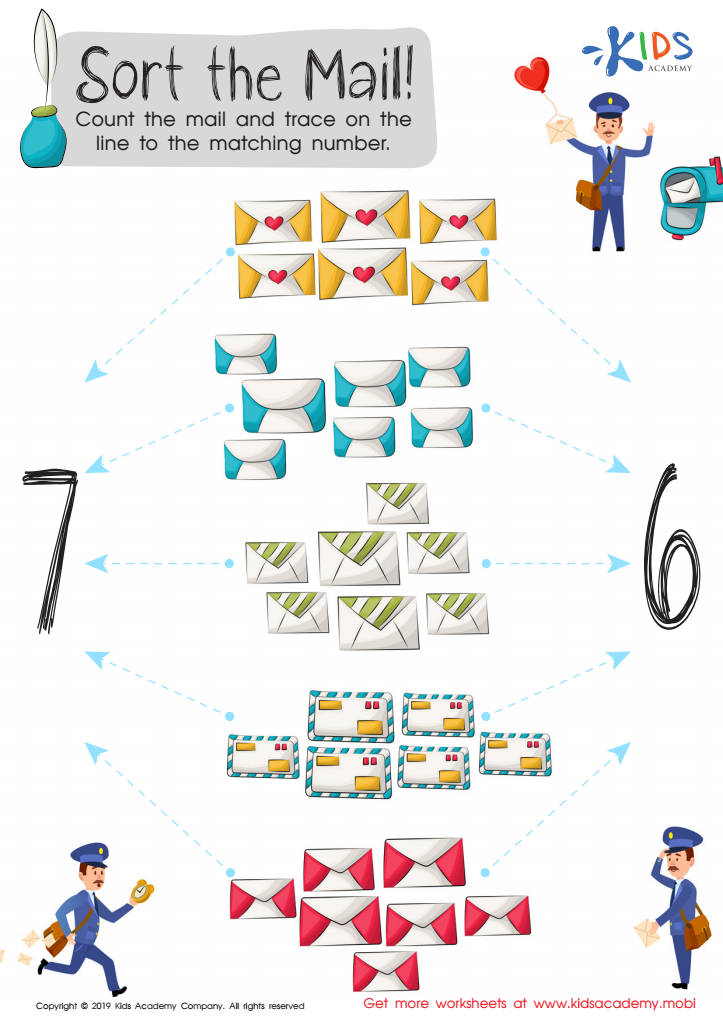

Sort the Mail Worksheet
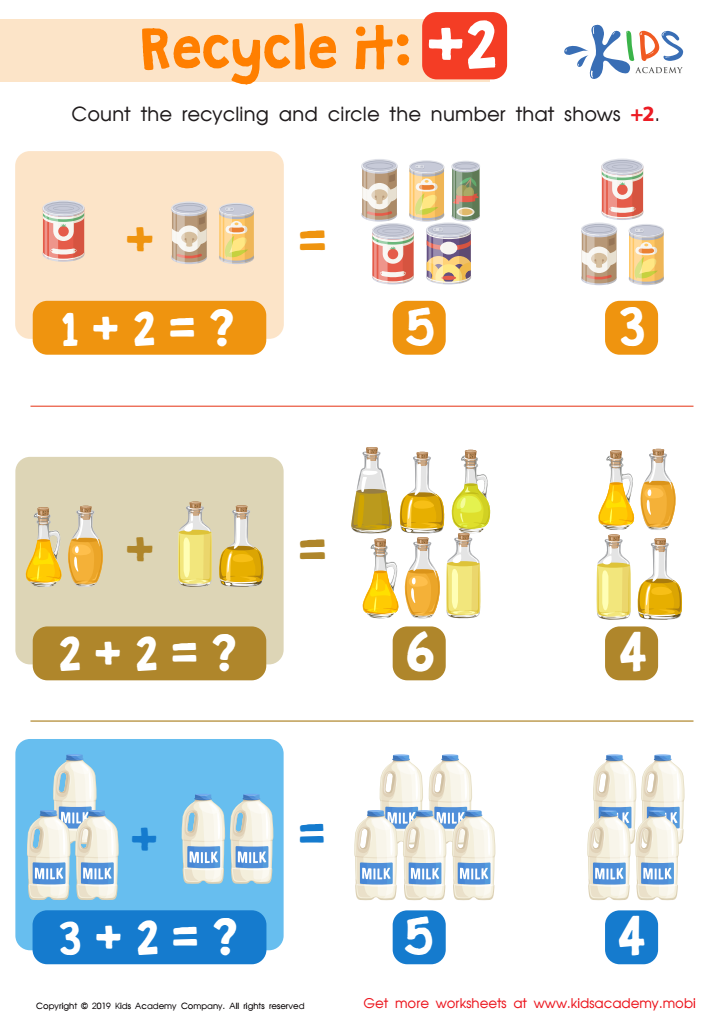

Recycle It: +2 Worksheet
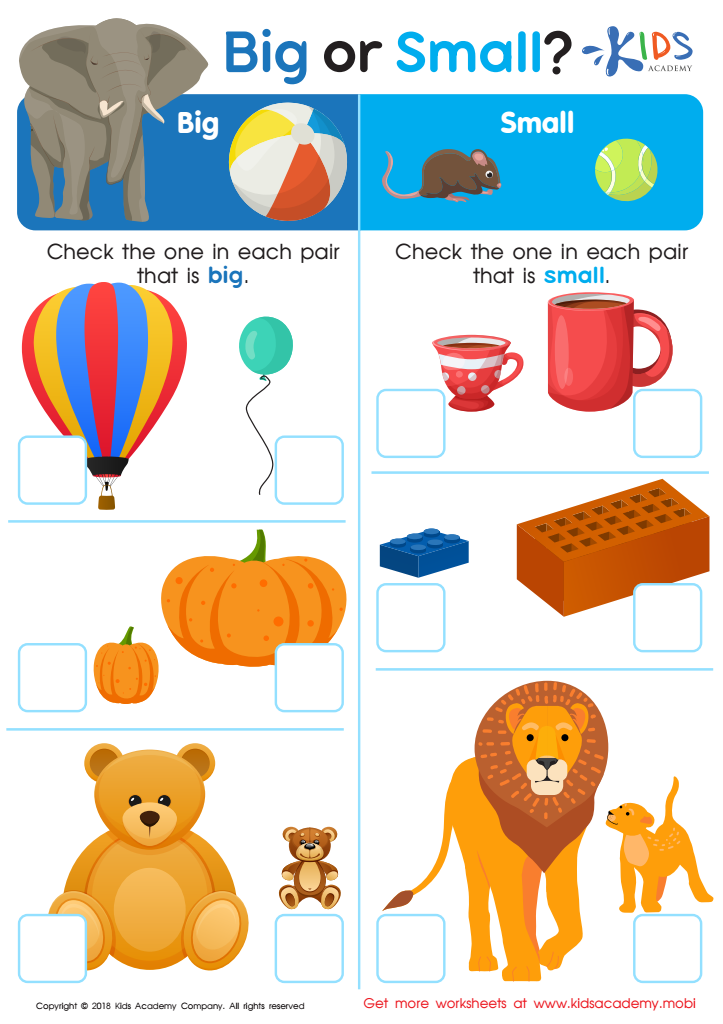

Big or Small? Worksheet
Sorting skills are crucial for young children, ages 3-8, as they establish a foundation for critical thinking and cognitive development. Parents and teachers should care about nurturing these skills because they enhance a child's ability to organize, categorize, and make sense of the world around them. When children sort objects, such as toys or colored blocks, they practice observing similarities and differences, which sharpens their attention to detail.
Additionally, sorting activities support mathematical understanding. By grouping items based on attributes like size, shape, or color, children develop early concepts of numbers, patterns, and sequencing—key components of mathematical reasoning and problem-solving. This foundational knowledge paves the way for more complex math skills later in school.
Socially and emotionally, sorting tasks can boost a child's confidence and ability to self-regulate. Successfully completing a sorting task provides a sense of accomplishment, fostering a positive attitude towards learning and problem-solving. It involves decision-making and following instructions, which are crucial for school readiness.
Moreover, sorting encourages language development. As children describe their sorting criteria and discuss their findings, they expand their vocabulary and communication skills. Overall, nurturing sorting skills in young children is an investment in their intellectual and emotional growth, preparing them for future academic and life challenges.
 Assign to My Students
Assign to My Students















